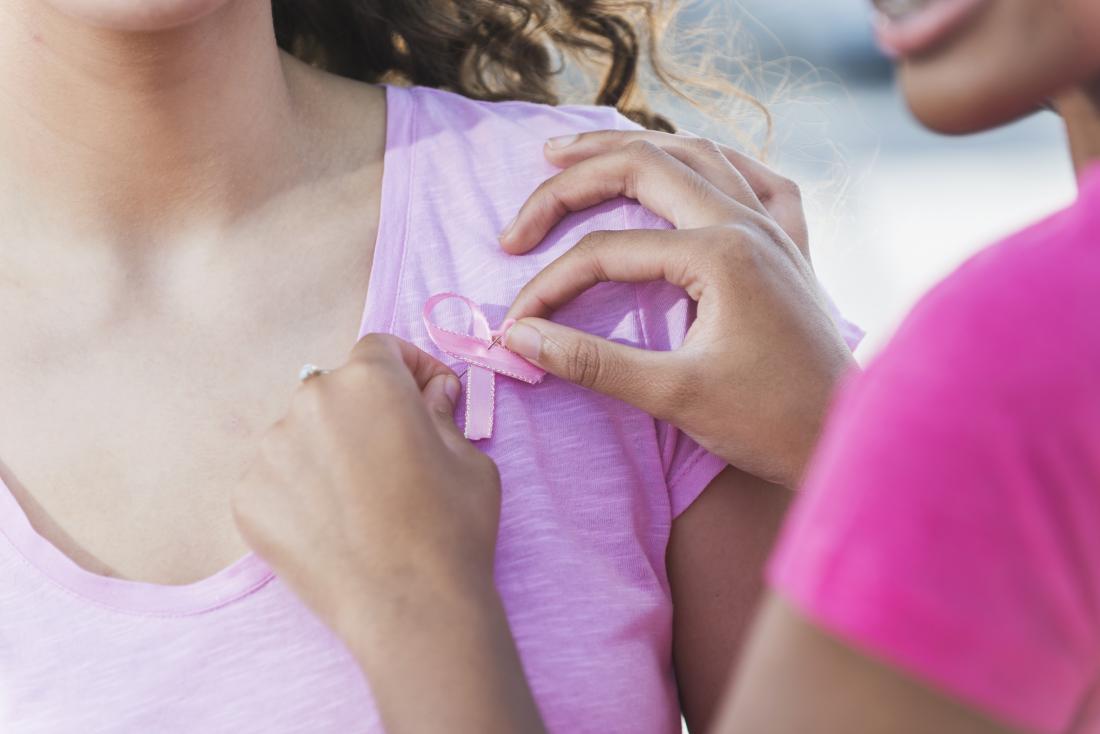A common concern is knowing how old you can get breast cancer. The reality is that there is no single answer, but that age and breast cancer are related to other factors. Learn about important information here.
Thanks to medical advances, we have a higher life expectancy. Still, being young is no guarantee of being healthy. Similarly, having an advanced age is not indicative of disease. What we should note is that some disorders are more common at certain stages of our life.
In the case of breast cancer, the risk of suffering from it (especially in women) increases with age but eventually decreases.
Remember that men and women are born with very similar breast tissue and that hormones during puberty trigger the characteristic development of female breasts. So breast cancer in men is also possible, regardless of age.
age and breast cancer
About 18% of breast cancer cases are diagnosed around 40.
77% of breast cancer diagnoses are made after the age 50, but after the age 75, the risk decreases significantly.
Girls and adolescents can also have breast cancer cases, but they are rare.
Let’s see below how it can affect breast cancer according to age.
Breast cancer in infants, girls and adolescents
You drink
-
- Babies (both girls and boys) have been reported to show small lumps in their breast tissue during or after birth.
- The cause of this anomaly, many times, is the mother’s estrogen during pregnancy. There is no indicated treatment for this case, as the bumps disappear over time.
- Girls and boys
- As they approach puberty, girls may develop what is known as breast buds, which are tender lumps. Boys may have breast enlargement in response to their hormonal changes.
- In any of these cases, an endocrinologist must assess the child and the correct path in any of these cases.
- The most common breast cancer in girls is secretory carcinoma, a rare variant of breast ductal carcinoma. Its incidence is very similar in men and women, but it mainly affects boys, girls and young people of both sexes.
- The general prognosis of this type of breast cancer is very favourable, as long as it is detected early and treated correctly by trained health professionals.
- Teenagers and the beginning of the menstrual period
- We know that female hormones, such as estrogen, are a factor of interest in developing breast cancer. That is why it is scarce in girls who have not had their menstruation.
- Phyllodes tumours can also present during the first years of life. It is recognised for having a firm consistency, being mobile and with well-defined borders. Its growth is rapid and can reach a size of up to 20 centimetres.
- Remember that a tumour is an abnormal growth, but its presence does not mean it can give you breast cancer. However, there is a chance that such a tumour is entirely benign. A pathology study will determine this.
- In the case of malignant tumours detected before metastasis, the prognosis is favourable in the vast majority of cases.
- Hormonal changes, such as those that occur during puberty, are essential.
- Breast cancer in young women
- Some factors to consider in adult women and their chance of developing breast cancer.
- Maternity
- A risk factor for breast cancer is related to late motherhood, in the case of women who had their first child after the age of 30. The later and the fewer children we have, the risk of suffering from this disease increases.
- Some studies strongly link the constant hormonal change women are subjected to during our period with the appearance of breast cancer.
- Genetic factors
- Mutations in the BRCA-1 gene are also associated with the appearance of breast cancer in women between 40 and 50 years of age. Mutations in the BRCA-2 gene seem responsible for the arrival of breast cancer in women after age 55.
- changes with age
Studies by Zeichner and Cancelaria in 2016 ensure that the most frequent age among breast cancer patients ranges between 40 and 49 years.
- Some types of cancer that stand out for their aggressiveness are more common at these ages, so the faster they are detected, the better the prognosis.
- You must perform your self-examination regularly. Early detection of breast cancer is a determining factor for its cure.
See your doctor if you feel any lump or lump, pain, discharge or change in the appearance of the skin of your breasts or your nipples. Although there are many reasons why you can get breast cancer, prevention will always be the key.


